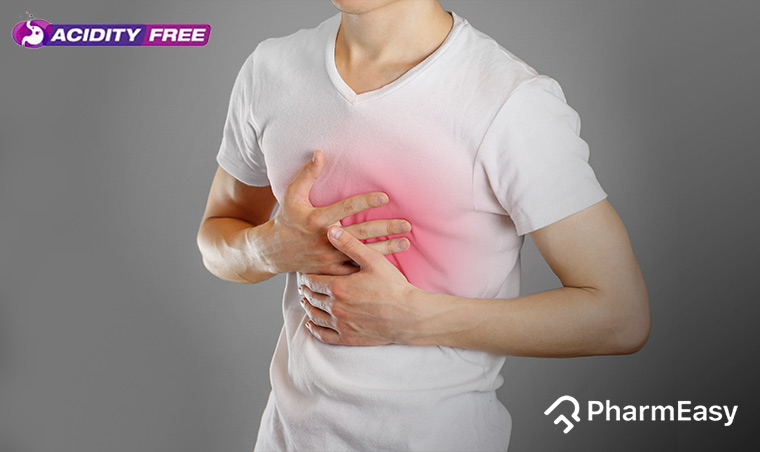Facing Acidity During Winter? Here’s The Solution!
By Dr. Nikita Toshi +2 more

Get,

to manage your symptom
Get your,


4 Cr+ families
benefitted

OTP sent to 9988776655



You’ve successfully subscribed to receive
doctor-approved tips on
Whatsapp

Get ready to feel your best.

Hi There,



Register to Avail the Offer
Send OTPBy continuing, you agree with our Privacy Policy and Terms and Conditions

Hi There,

Trusted by 4 crore+ families

OTP sent to 9988776655



You have unlocked 25% off on medicines




Code: NU25

By Dr. Nikita Toshi +2 more
Have you lately felt that your joints ache when the temperature drops? Even though the science behind this relationship isn’t clear, flare-ups, when the weather turns, are quite real for most people with joint pain. This may sound like migrating to a warmer climate is the only remedy. However, here are a few ways to help reduce your joint pain:

You find yourself in pain as the weather changes and consider taking a pain killer known as NSAIDs (non-steroidal anti-inflammatory drugs) which will give you temporary relief. But wait!! Did you experience heartburn post popping that painkiller??
Table of Contents
NSAID medications decrease the production of chemicals called prostaglandins, which contribute to pain and inflammation in the body. NSAIDs such as aspirin, ibuprofen and naproxen can cause ulcers by interfering with the stomach’s ability to protect itself from gastric acids. Although stomach acids are vital for the digestive process, they can cause damage if the protective barriers of the stomach are compromised.
The step-by-step process of how NSAIDs work:
Step 1: NSAIDs reduce pain by blocking the enzymes that are involved in the production of certain prostaglandins.
Step 2: Prostaglandins are protective in the mucosal layer of the stomach and when they are depleted, there can be a break in that layer.
Step 3: The suppression of the body’s natural defences against gastric acids can lead to inflammation in the stomach lining.
Step 4: Over time, this can cause the break of a capillary blood vessel, causing bleeding and ulcer in the mucosal lining.
Also Read: Omee tablet
Painkillers or NSAIDs slow the production of the protective mucus and change its structure. Following are some of the effects of painkillers on your body:
Regular use of anti-inflammatory painkillers increases the risk of ulcers up to five-fold.
Also Read: Acidity Problems? 14 Home Remedies That Can Help
If you need extended relief from ongoing pain, consult your doctor. There may be something more serious ailing you. Your doctor may advise you about some over-the-counter medication that will relieve you from these symptoms.
Also Read: What is a Fever Dream? Understanding Its Causes and Implications
It’s important to consult a doctor to treat heartburn, especially if you experience frequent symptoms. Over time, acid reflux can actually damage your oesophagus. Talk to your doctor about which prescribed or non-prescribed heartburn medicine is right for you.
Know more about Omeprazole
Disclaimer: The information provided here is for educational/awareness purposes only and is not intended to be a substitute for medical treatment by a healthcare professional and should not be relied upon to diagnose or treat any medical condition. The reader should consult a registered medical practitioner to determine the appropriateness of the information and before consuming any medication. PharmEasy does not provide any guarantee or warranty (express or implied) regarding the accuracy, adequacy, completeness, legality, reliability or usefulness of the information; and disclaims any liability arising thereof.
Links and product recommendations in the information provided here are advertisements of third-party products available on the website. PharmEasy does not make any representation on the accuracy or suitability of such products/services. Advertisements do not influence the editorial decisions or content. The information in this blog is subject to change without notice. The authors and administrators reserve the right to modify, add, or remove content without notification. It is your responsibility to review this disclaimer regularly for any changes.

Leave your comment...
Comments